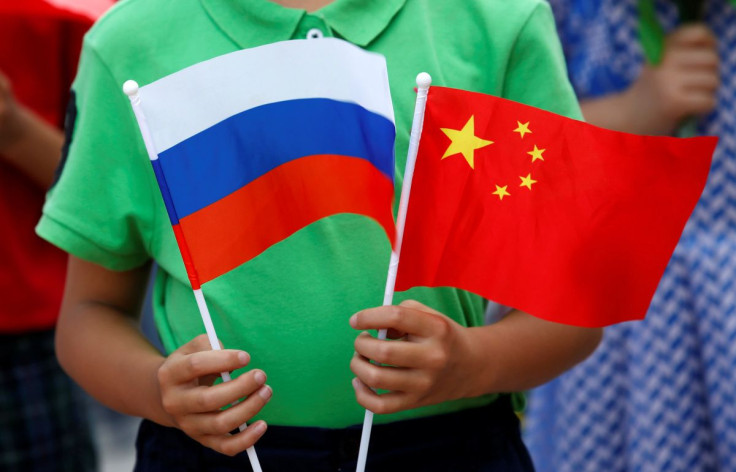'The Great Translation Movement': Anonymous Online Group Is Taking On Pro-Putin Propaganda In China
KEY POINTS
- Analysts say the movement has exposed the ugly workings of the Chinese internet
- The movement reportedly exposed content intended for domestic consumption
- Now, China has begun to censor sexist messages mocking Ukrainian suffering
A group of Chinese dissidents has started a social media campaign titled "The Great Translation Movement," which names and shames those who praise the Russian invasion of Ukraine on Chinese social media.
The anonymous group collects social media messages that support Putin, authoritarianism and war and translates them into languages, including English, so that the world sees them, reported The Diplomat.
Through this, they highlight online opinions about the war in China that is heavily influenced by the ruling Chinese Communist Party (CCP) propaganda and a ban on criticism of Russia. The Great Translation Movement Twitter account, created in mid-February, now has more than 99,000 followers though the identities of the campaign organizers remain unknown.
#大翻译运动 #TheGreatTranslationMovement https://t.co/QCXPzl8W3j
— The Great Translation Movement 大翻译运动官方推号 (@TGTM_Official) April 6, 2022
A Lecturer at Fudan University, Weibo OP specializing in the Russian-Ukrainian conflict with over 1.7M subscribers justifying a potential massacres of Ukrainian civilians by the Russian military. #TheGreatTranslationMovement #大翻译运动 #UkraineRussiaWar pic.twitter.com/IztM8bWUiT
— The Great Translation Movement 大翻译运动官方推号 (@TGTM_Official) April 4, 2022
Taiwan-based dissident Gong Yujian told Radio Free Asia that the Great Translation Movement account has indeed exposed the ugly workings of the Chinese internet under the CCP.
"Basically, in their eyes, Ukraine is the aggressor, while Russia has become the invaded country, the weaker party," he said. "Their ideas are totally back to front." Gong added that the translation movement exposed the content intended for domestic consumption to the international community.
The brains behind the movement told Deutsche Welle that they aimed to raise awareness among people around the world that the Chinese, unlike their public image, are not as "warm, hospitable and kind," but "a proud and arrogant, populist flourishing, cruel, bloodthirsty, unsympathetic collective."
They add that while doing translations for the campaign, some participants were shocked by the disturbing content and had to temporarily stop reading Chinese social media for their mental health.
"I'm in a really bad mood. I've seen many videos and pictures that made me cry several times. If possible, I hope I haven't learned Chinese at all, so I can't understand the content in it, and I won't even push it at all," a campaigner told DW.
The group has translated several posts that idolize Russian President Vladimir Putin. One post has a screenshot of Putin standing in front of a crowd with the caption: "Half the countries in the world are bullying this man." This post has garnered tens of thousands of comments from social media users in China.
"A glimpse inside how Putin is being idolized on Chinese Tiktok (Douyin)," the account posted. Some comments read "We. China. Are here for you. Hang in there." while others address him as a "legendary figure who will go down in history."
The campaign has come to the notice of the Chinese authorities as well. Shortly after they translated a vulgar message about Chinese men "sheltering" young Ukrainian women, China began censoring sexist messages that mocked the sufferings of Ukrainian civilians. For the Great Translation Movement, this was a victory against the CCP Propaganda.
Chinese state media outlet Global Times then took on the movement, calling it "a cognitive war" against China carried out by a group of people who are "unfriendly or even hostile toward China with the simple purpose of creating more waves of anti-China sentiment."

© Copyright IBTimes 2025. All rights reserved.





















